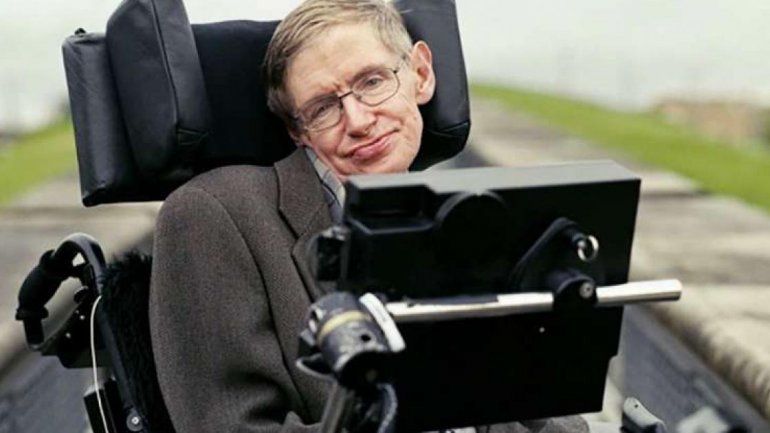Stephen Hawking passed away aged 76
 foto: en.prothom-alo.com
foto: en.prothom-alo.com
Professor Stephen Hawking, the renowned British physicist and author of A Brief History of Time, has died at the age of 76.
He died peacefully at his home in Cambridge in the early hours of Wednesday morning, his family said.
Prof Hawking, one of the world's finest scientific minds, was diagnosed with a rare form of motor neurone disease in 1964 at the age of 22 and was given just a few years to live.
He eventually became confined to a wheelchair and dependent on a computerized voice system for communication.
Despite this, he continued to travel the world giving lectures and writing scientific papers about the basic laws that govern the universe. Prof Hawking explained the Big Bang and black holes in his best-selling book A Brief History Of Time.
As tributes to the acclaimed physicist poured in from around the world, Prime Minister Theresa May said he was "a brilliant and extraordinary mind - one of the great scientists of his generation" whose "courage, humor and determination to get the most from life was an inspiration".
The University of Cambridge said he was "an inspiration to millions" and his work will leave "an indelible legacy".
Eddie Redmayne, who starred as Professor Hawking in The Theory Of Everything, said in a statement: "We have lost a truly beautiful mind, an astonishing scientist and the funniest man I have ever had the pleasure to meet.
"My love and thoughts are with his extraordinary family."
In a statement early on Wednesday, Prof Hawking's children Lucy, Robert and Tim said: "We are deeply saddened that our beloved father passed away today.
"He was a great scientist and an extraordinary man whose work and legacy will live on for many years.
"His courage and persistence with his brilliance and humour inspired people across the world. He once said, 'It would not be much of a universe if it wasn't home to the people you love.' We will miss him forever."
Prof Hawking was born on January 8 1942 in Oxford, the eldest of four children, and went on to become one of the world's most acclaimed cosmologists.
His most famous scientific insight concerned the arcane physics of black holes. He discovered the phenomenon which has become known as Hawking radiation, where black holes leak energy and fade to nothing.
Prof Hawking was left having to use a wheelchair by the time he was 30. In 1986, aged 44, his voice was removed to save his life after an attack of pneumonia.
From then on, he spoke through a computer synthesiser on the arm of his wheelchair.
"I am quite often asked: how do you feel about having ALS?" he once wrote. "The answer is, not a lot.
"I try to lead as normal a life as possible, and not think about my condition, or regret the things it prevents me from doing, which are not that many."
Prof Hawking was Britain's most famous modern day scientist, a genius with a razor-sharp wit who dedicated his life to unlocking the secrets of the Universe.
"My goal is simple," he once said. "It is complete understanding of the universe, why it is as it is and why it exists at all."
Much of Prof Hawking's work centred on bringing together relativity - the nature of space and time - and quantum theory - how the smallest particles in the Universe behave - to explain the creation of the universe and how it is governed.
Hawking shot to international fame after the 1988 publication of A Brief History of Time, one of the most complex books ever to achieve mass appeal, which stayed on the Sunday Times best-sellers list for no fewer than 237 weeks.
He said he wrote the book to convey his own excitement over recent discoveries about the universe.
In 1974, he became one of the youngest fellows of Britain's most prestigious scientific body, the Royal Society, at the age of 32.
Read more on Telegraph